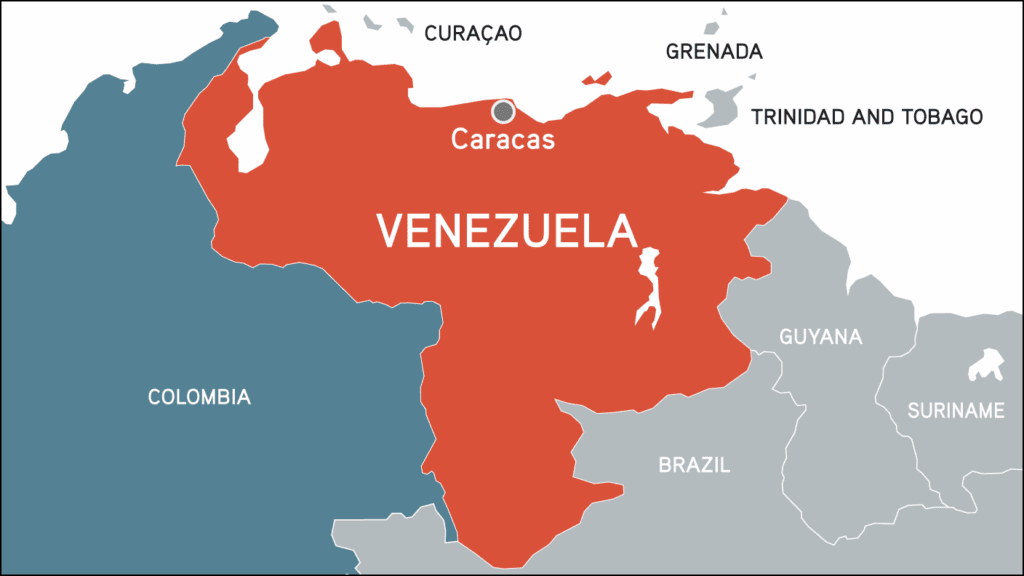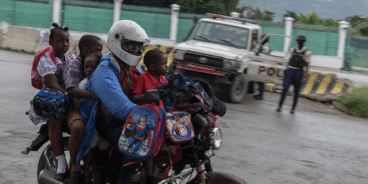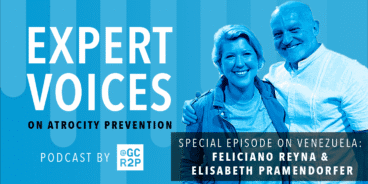Venezuela

Ongoing systematic state-led repression in Venezuela may amount to crimes against humanity.
BACKGROUND:
On 10 January 2025 Nicolás Maduro was sworn in for a third presidential term following elections on 28 July 2024, which were widely condemned as fraudulent. Independent tallies from polling centers showed an estimated 67 percent of votes for the leading opposition candidate. Throughout the electoral process and continuing to the present, the government has intensified its persecution of actual or alleged opponents, including ordinary citizens, opposition members, journalists and human rights defenders, to silence dissent and maintain power. Presidential elections were viewed by many Venezuelans as a vital opportunity for a long-term democratic transition and an end to the country’s decade-long multidimensional crisis. Following years of endemic corruption and the gradual erosion of the rule of law, in 2014 mass protests erupted in response to insecurity, hyperinflation and a lack of essential services. Security forces reacted with disproportionate force, torture and sexual violence.
Since then, the Venezuelan government, including the security and intelligence apparatus, has perpetrated systematic arbitrary detention, torture and ill-treatment, sexual and gender-based violence and short-term enforced disappearances targeting actual and perceived opponents. Various security forces have also allegedly perpetrated tens of thousands of extrajudicial killings in the name of combating crime, predominantly targeting men between 18 and 30 years-old living in low-income neighborhoods. Over the past decade, an estimated 8 million Venezuelans have left the country in what is considered the largest migration crisis in recent Latin American history.
The UN Human Rights Council (HRC)-mandated Fact-Finding Mission (FFM) on Venezuela warned of “the accelerated reactivation of the repressive machinery that was never dismantled and is now being used to undermine the public freedoms of citizens.” Venezuelan non-governmental organization (NGO) Foro Penal recorded the detention of almost 2,000 individuals between the election and inauguration day. Efforts to maintain internal obedience also put military personnel at heightened risk of violations and abuses, including enforced disappearances. Since August 2024 the National Assembly has passed a series of restrictions, including legislation known as the “NGO Law,” jeopardizing the work, safety and security of organizations across the country, as well as other measures to criminalize political opposition. Attorney General Tarek William Saab regularly threatens human rights defenders engaging with UN mechanisms with arrest upon return to Venezuela, and authorities have increasingly resorted to short-term enforced disappearances, including of political opponents and prominent human rights defenders, to instill fear and crush dissent.
Since the HRC established the FFM in 2019, it has repeatedly found that violations and abuses committed since at least 2014 were part of a “widespread and systematic attack” against the civilian population and are “part of a plan orchestrated at the highest levels of the government to repress dissent through crimes against humanity.” The Chief Prosecutor of the International Criminal Court (ICC) opened investigations into possible crimes against humanity in November 2021. The government has consistently refused to cooperate with the FFM.
In addition to widespread repression, communities across Venezuela, including Indigenous Peoples, remain at heightened risk of egregious abuses by armed groups, criminal gangs or other non-state actors, acting at times with the consent and direct involvement of state agents who have been implicated in possible crimes against humanity.
In response to President Maduro’s fraudulent third term, many countries have expanded pre-existing individual sanctions regimes, including the United States (US), Canada and the European Union (EU).
RECENT DEVELOPMENTS:
Parliamentary and regional elections on 25 May were marked by a renewed surge in repression, including arbitrary detentions and short-term enforced disappearances targeting dozens of opposition figures and human rights defenders. With much of the opposition boycotting the vote and low voter turnout, the ruling party secured most governorships and retained control over the National Assembly.
On 26 June OHCHR warned that the refusal to grant its full country team access to Venezuela is significantly affecting its ability to carry out its monitoring, reporting and technical assistance mandate. Days later, UN High Commissioner for Human Rights Volker Türk was declared persona non grata.
On 22 September the FFM found that the government continues to commit the crime against humanity of politically motivated persecution. The FFM also warned of a record number of foreign nationals being subjected to prolonged incommunicado detention, constituting enforced disappearances.
In recent months, the US government has intensified its military rhetoric and posture toward Venezuela, a stance often echoed and encouraged by prominent opposition figures. This includes unlawful airstrikes conducted under the guise of “anti-drug operations,” which have killed dozens of people since early September and amount to extrajudicial executions. This escalation risks igniting a dangerous conflict with disastrous consequences for Venezuelans and the broader region.
In February 2024 the government demanded the Office of the UN High Commissioner for Human Rights (OHCHR) withdraw its staff from Venezuela. Following sustained efforts by OHCHR to be re-granted full access, on 16 December the UN High Commissioner for Human Rights announced no international staff remains in the country to carry out its monitoring, reporting and technical assistance mandate.
On 1 December the Office of the Prosecutor of the ICC announced its decision to close its in-country office in Caracas. While the ICC’s investigation remains active, on 11 December Venezuela’s National Assembly began discussions to withdraw from the Rome Statute.
ANALYSIS:
Venezuela continues to face a highly volatile period in the aftermath of two significant electoral cycles. Compared with other periods over the past decade, the current tensions and patterns of repression are unprecedented. State institutions, including the Attorney General’s office and the National Assembly, serve as instruments to facilitate the commission of crimes against humanity. Migration is expected to further increase due to intensifying repression.
President Maduro’s grip on power is risking a period of renewed regional and international isolation, with disastrous effects for Venezuelans inside and outside the country. Independent monitoring, including by the FFM, is essential to maintain the spotlight on the crisis and identify mitigation strategies to address ongoing crimes against humanity and must go hand in hand with efforts by cross-regional actors to compel the Maduro administration to engage in political dialogue.
Venezuela’s judicial system is complicit in the commission of possible atrocity crimes, including through the fabrication of criminal cases against opponents, the systematic denial of judicial guarantees and refusal to investigate state agents accused of crimes against humanity. Government-linked media outlets also play a key role in state repression and persecution. Mass detentions and the use of telecommunication channels to persecute alleged opponents are used to maintain social control and instill fear.
RISK ASSESSMENT:
-
-
- Senior government officials involved in the planning and commission of violent acts, including crimes against humanity.
- Lack of independent and impartial judiciary and other state institutions, as well as impunity for or tolerance of serious violations of international law, including atrocity crimes.
- Adoption of measures to criminalize civil society organizations and attacks against democratic institutions and electoral guarantees, particularly in the context of the 2024 and 2025 elections.
- Absence of accountable state authority, presence of non-state armed actors and high levels of crime, corruption and illicit economic exploitation.
- Political motives to continue systematic repression aimed at consolidating power.
-
NECESSARY ACTION:
Venezuelan authorities must immediately end the systematic repression and targeted persecution of all actual or alleged opponents and release all individuals subject to arbitrary detention and enforced disappearances. The government should commit to a political solution to the crisis and ensure genuine and comprehensive reform, pursue impartial investigations of all serious violations and abuses and fully cooperate with the FFM, OHCHR, ICC and other international protection and accountability mechanisms.
The US should halt its bellicose rhetoric, unlawful airstrikes, extrajudicial executions and other hostile measures, and recommit to coordinated diplomatic efforts aimed at a peaceful, negotiated solution to the crisis in coordination with cross-regional governments. Together, UN member states should develop coordinated mitigation strategies to advance a political solution, using the FFM’s recommendations as the basis for political and diplomatic efforts to prevent the recurrence of crimes against humanity.
The international donor community should expand their support for civil society organizations documenting human rights violations and continue to publicly call for the release of those arbitrarily detained or forcibly disappeared. Bilateral, regional and multilateral diplomatic, political and economic measures, including sanctions, must be designed to avoid exacerbating the socio-economic vulnerabilities of large segments of Venezuelan society.
For more on the Global Centre’s advocacy work on the situation in Venezuela, see our Venezuela country advocacy page.
Atrocity Alert No. 467: South Sudan, Israel and the Occupied Palestinian Territory and Venezuela
Related Content

Letter to UN Human Rights Council members on atrocity prevention priorities at the Council’s 61st session

